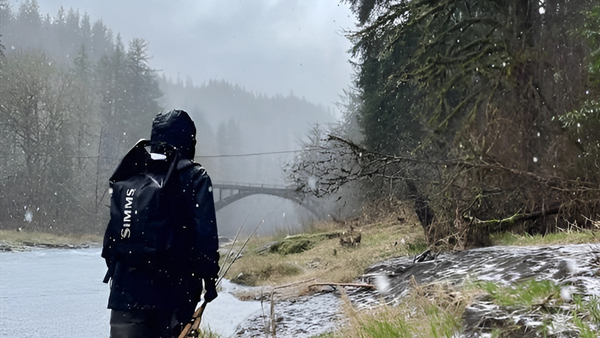
Drift Fishing For Steelhead
Drift Fishing for Steelhead in the Pacific Northwest
If you’ve ever stood on the bank of a misty Pacific Northwest river at sunrise, rod in hand, hoping for the unmistakable tug of a steelhead, then you already know: there’s nothing quite like it. And when it comes to catching these elusive fish, drift fishing remains one of the most time-tested and effective techniques out there.
At Fisherman’s Marine & Outdoor, drift fishing is in our DNA — and we’re here to help you dial in your setup for success.
What Is Drift Fishing?
Drift fishing is a bottom-contact technique where your bait or lure is presented naturally as it tumbles downstream with the current. The idea is to imitate a free-floating egg, worm, or baitfish — something a steelhead might casually grab as it drifts by.
You cast upstream at a slight angle, allow your gear to sink and drift along the river bottom, and follow the drift with your rod tip. The key is feeling the bottom — that light “tick-tick” as your weight bounces along — and recognizing the difference between rock and bite.
Essential Drift Fishing Gear
You don’t need a boat or fancy electronics — but you do need the right setup:
Rod:
-
8’6” to 10’6” medium-light or medium power
-
Moderate-fast action (think: sensitivity and backbone)
-
Popular pick: North River 9'6" ML Drift Rod
Reel:
-
Spinning or baitcasting reel with a smooth drag
-
Line capacity for 8–12 lb test
Mainline:
-
Monofilament is most common (10–12 lb)
-
Braided line can work with a mono leader
Terminal Tackle:
-
Pencil or slinky weights
-
Size 2–4 bait hooks
-
Swivels and snap swivels
-
Leader (8–10 lb fluorocarbon)
Best Baits & Lures for Drift Fishing
Steelhead aren't picky… until they are. Be ready to change it up:
Natural Baits:
-
Cured roe
-
Sand shrimp
-
Nightcrawlers
Artificial Baits:
-
Soft beads (12–14mm in pink, orange, peach)
-
Yarnies
Drift Lures:
-
Corkies
-
Cheaters
-
Spin-N-Glos
Best Water Conditions for Drift Fishing
Drift fishing shines when the river has:
-
Moderate flow (2–6 feet/second)
-
2–6 feet of visibility
-
Defined seams and current breaks
-
Tailouts and riffle edges
Steelhead often sit on the soft edges or just inside the seam — not right in the heavy current. A well-placed drift through these travel lanes can be the ticket.
Top Drift Fishing Rivers in the PNW
-
Sandy River – Great bank access and winter fish
-
Wilson River – Classic coastal water
-
Clackamas River – Close to Portland, sneaky good
Wherever you go, match your presentation to water clarity, and don’t be afraid to move. Steelhead are wanderers — and so should you be.
Final Word
Drift fishing for steelhead is a blend of feel, patience, and instinct. It’s not just about gear — it’s about reading the water, adjusting your depth, and staying persistent.
Hook up this winter or spring, and you’ll know what makes this fish — and this technique — legendary in the PNW.
